Table of Contents
Choosing the right diet is crucial for managing an inflamed intestine. Foods like probiotics and leafy green vegetables are particularly effective in reducing gastrointestinal inflammation.
However, there’s much more to consider when soothing an upset gut. In this article, we’ll explore the primary causes and symptoms of inflamed intestines, discuss various treatment options, and advise on when to seek professional help.
The importance of gut health
The role of the gut in our overall health has been underestimated for a long time. The homeostasis of the trillions of bacteria, fungi, and viruses that inhabit our gut is essential for our health. However, our diet, lifestyle, and physiology can all affect the health of our gut microbiota.
An imbalance in our microbiome is called dysbiosis. Research has shown that this state can seriously affect the development of other diseases, such as type 2 diabetes, and obesity, and also life-threatening diseases such as cancers or cardiovascular diseases (1).
That’s why gut health has a central point when you are trying to build long-term health. If you are experiencing any gut problems, you should not hesitate to try to solve the problem as soon as possible to avoid further complications.

What is inflammation?
Firstly, it’s important to note that inflammation is a natural process in the body. As a matter of fact, inflammation occurs as a response to injuries or pathogens to protect our bodies.
Phases of inflammation:
- Induction phase: The first phase is called the induction phase. During this phase, the body creates a strong pro-inflammatory immune response to eliminate possible pathogens or heal an injury.
- Restoration phase: In this second phase, the body tries to regain its balance. This phase starts when the harmful stimuli have been removed.
When the restoration phase doesn’t occur, the result is a state of constant inflammation.
Inflammation plays an important role in the development of many diseases, such as asthma, rheumatoid arthritis, and inflammatory bowel disease. The last one presents one of the main focus points of this article (1).
Causes and symptoms of intestinal inflammation
Intestinal inflammation and its symptoms can stem from various causes. Here are some potential reasons you might experience an inflamed gut.


Intestinal gastritis
Gastritis is a condition in which the inner layer of mucous in the stomach becomes inflamed. This inner layer acts as a protective layer for the stomach.
In the United States, about 8 out of 1,000 people suffer from acute gastritis (17). It’s a condition that occurs suddenly and goes away after a short period. Often, its causes are alcohol abuse, medication, or infections.
About 2 out of 10,000 people in the United States suffer from chronic gastritis, a condition that is permanent and develops over time (17). The most common cause of chronic gastritis is H. Pylori infection.
Gastritis may even be asymptomatic, but common symptoms include stomach pain, nausea, bloating, or loss of appetite.
Reasons for gastritis are multifaceted, including:
- Bacterial or viral infections, but also parasites or fungi
- Alcohol or drugs
- Autoimmune diseases
- Reduced blood supply through injury or psychological stress
Gastritis symptoms may be treated with antacids whose role is to neutralize stomach acids. However, the underlying cause of gastritis must be identified and treated. Sometimes, the treatment includes antibiotics or other drugs (17).
Inflammatory bowel disease (IBD)


Inflammatory bowel diseases are a group of diseases, characterized by uncontrolled inflammation in the gastrointestinal tract (GI). Ulcerative colitis (UC) and Crohn’s disease (CD) are the most common IBDs (7). Both of these are incurable and lifelong.
UC affects the inner layer of the colon. The inflammation occurs in the colon and rectum, with symptoms developing over a longer time.
It hasn’t been determined why people suffer from UC. Lifestyle factors, along with the malfunction of the immune system, are suspected to be the possible causes of this disease (18). Some of the risk factors of UC are age and family history. Make sure to check if any of your family members have a history of this disease.
Many complications can occur when you are suffering from UC. Typical cases include severe dehydration, swelling of the colon, inflammation of skin and eyes, osteoporosis as well as other complications (18).
People with Crohn’s disease suffer from inflammation that can occur anywhere in the gastrointestinal tract. Once in a while, parts of the intestine even have to be removed to stop the inflammation. The most common symptoms of Crohn’s Disease include fever, pain, and diarrhea.
Due to the severe burden of IBD on an individual, you can also experience mental health issues, such as anxiety and anger (1).
Diet
Research has shown that a high-fat and low-fiber Western diet is a risk factor for an inflamed gut (2). This type of diet is characterized by highly processed food and carbohydrates derived from refined sugars. Studies have shown that a diet like the one described above leads to a spike in inflammatory markers, like c-reactive protein.
Medication
Medication can be another factor that influences gut health. Here are some examples of medications that might lead to inflammatory processes in the gut (3):
- Antibiotics
- Chemotherapeutic drugs
- Bisphosphonates, which are used for the treatment of osteoporosis
- Olmesartan, which is used against high blood pressure
- Iron, when it is used in oral iron therapy
- Nonsteroidal anti-inflammatory drugs (NSAIDs), for the treatment of arthritis, fever, and musculoskeletal pain
Ways to reduce and heal intestinal inflammation
There are several things you can do yourself to support the healing gut inflammation process.


Anti-inflammatory diet
One of the first things you can do to heal your gut is to keep an eye on what you eat. A so-called anti-inflammatory diet is the best way to avoid gut diseases. If you want to follow an anti-inflammatory diet, you have to make sure to avoid the following foods:
- Refined carbohydrates (white bread or pastries)
- Fried foods (French fries)
- Sodas or beverages that are sweetened with sugar
- Red meat (burger or steaks)
- Processed meat (hot dogs or sausage)
- Margarine
Those pro-inflammatory foods are not only associated with the inflammation of the gut but also with other diseases, such as type 2 diabetes or heart disease (4).
Stress reduction
In our fast-paced modern world, most of us experience some kind of stress in one way or the other. Whether it’s cars honking at a traffic light or pressures from work, stress is a common part of our daily lives.
The term “chronic stress” describes a state in which we experience a continuous state of stress (5). Environmental, psychological, or physiological factors can trigger stress on our bodies. If we are under stress, our bodies react by distributing stress hormones and neurotransmitters (5).
When we are under stress, our bodies distribute catecholamines, for instance. Those neurotransmitters increase blood pressure and the heart rate. In critical or dangerous situations, this response can be vital for our survival.
However, we usually don’t need a faster beating heart or raised blood pressure during our daily tasks. Besides that, a continuous state of stress can lead to inflammatory processes in the body (5).
A reduction of stress factors can be a crucial step towards reducing gastrointestinal inflammation. There are different methods on how to reduce the stress in your life (6):
- Sleep enough
- Get your body moving
- Relax through the breathing exercises
- Do stretching or yoga
- Go for a walk
- Play relaxing music and reduce all other noises
- Laugh!
- Talk to your friends and family
- Practice positive self-talk
Probiotics and prebiotics
You might have come across the terms “probiotic” and “prebiotic” in the media, but what do they refer to?
As previously mentioned, the processes in our gut are essential for our health. Probiotics and prebiotics can help support our gut microbiota and restore balance if it has been disturbed. Both are present in certain kinds of food that we can consume.
Probiotics are living microbes that often are consumed through fermented foods. They are the microbes that turn cucumbers into pickles or soybeans into miso. Famous fermented foods are sauerkraut, kimchi or kombucha (8).
Probiotics serve as fuel for the healthy bacteria that live in our guts, helping their growth. Both probiotics and prebiotics lead to a healthier microbiome, which in turn contributes to better overall health. Next time you are reaching for a snack, opt for yogurt with live and active cultures or grab a non-pasteurized glass of pickles to support your gut health.
Hydration
Drinking enough water might also be a good way to help your gut heal. Good hydration is another key to supporting your microbiome. The type and amount of water we consume can impact the diversity of microbes in our gut (9).
Hydration also plays a role in problems of the intestine, like constipation. In fact, it can be a central point in solving these issues (10).




Foods that heal gut inflammation
The good news is that there are plenty of foods that do the exact opposite of causing inflammation. To be exact, these foods are anti-inflammatory and can help reduce gastrointestinal inflammation. Some anti-inflammatory foods are (4):
- Nuts
- Olive oil
- Tomatoes
- Leafy green vegetables (spinach or kale)
- Fruits (strawberries, cherries, or blueberries)
How do anti-inflammatory foods work?
You might wonder: But how do these foods reduce the inflammation in my body? The answer is: Different anti-inflammatory foods have different anti-inflammatory mechanisms, explained below.
One really important mechanism includes anti-oxidative components of the food we eat. This mechanism is effective when our body becomes attacked. One of the most dangerous enemies of our health is free radicals, chemically unstable molecules that can wander through our system, causing severe damage to our body (12).
Free radicals have one or more unpaired electrons, which makes them very reactive with other molecules. These unwanted reactions cause damage to our cells damage to our cells or even DNA.
Antioxidants can counteract these free radicals while capturing them and eliminating the danger they present to our bodies (12).
When to see a doctor
Leaving an intestinal problem untreated can have unpleasant consequences. IBD is a serious condition and requires medical consultation. If you have any of the following symptoms, you should talk to your healthcare professional (13):
- Diarrhea
- Sudden weight loss
- Fatigue
- Blood in your stool
- Reduced appetite
- Pain and cramping of your stomach




How long does it take for inflamed intestines to heal?
The healing time of the gut can vary, depending on the cause and severity of inflammation. Mild cases may resolve within a few days to weeks with proper treatment and lifestyle changes, while chronic conditions may require long-term management (14).
What can I drink to calm my inflamed intestines?
What are the strongest natural anti-inflammatory foods?
Can an inflamed stomach lining heal itself?
Yes, an inflamed gut can heal itself, especially under the right conditions. Chronic inflammation, however, can only be improved by the right treatment (17).
Summary
Understanding and addressing intestinal inflammation is crucial for maintaining overall health and well-being. Whether caused by dietary factors, chronic conditions like IBD, or other triggers, gut inflammation can lead to discomfort and long-term complications if left untreated.
By adopting an anti-inflammatory diet rich in fruits, vegetables, nuts, and healthy fats, you can support gut health and reduce inflammation. Managing stress through relaxation techniques, proper hydration, and regular exercise also play a vital role in calming inflamed intestines.
In cases of persistent or severe symptoms such as diarrhea, blood in stool, or significant weight loss, seeking medical attention is needed to avoid complications and improve the quality of your life. Prioritize your digestive health today for a healthier tomorrow.





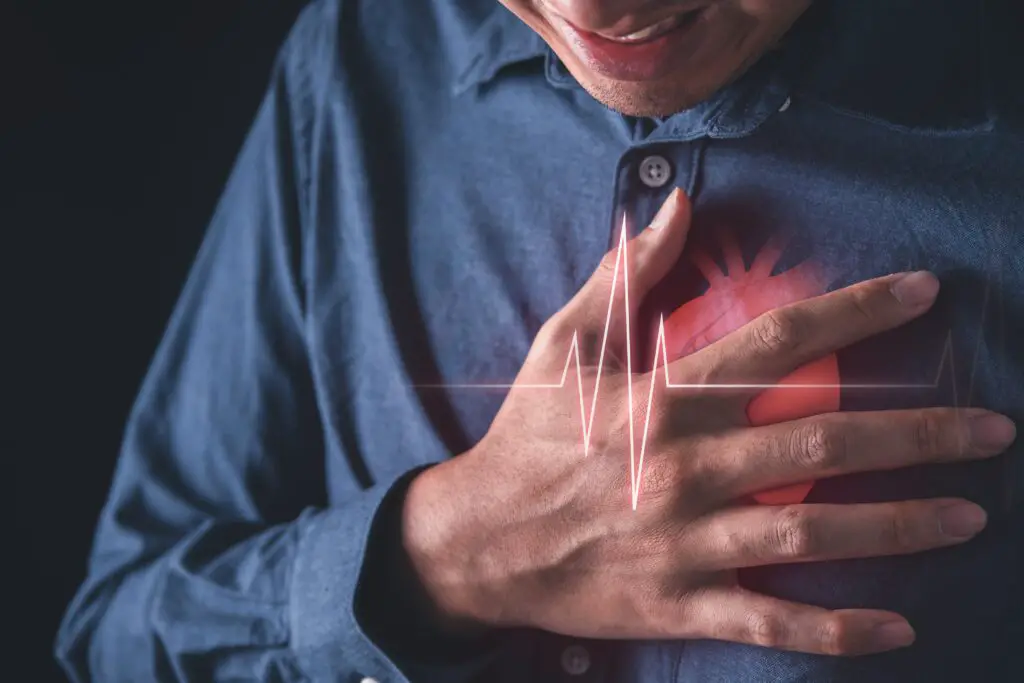
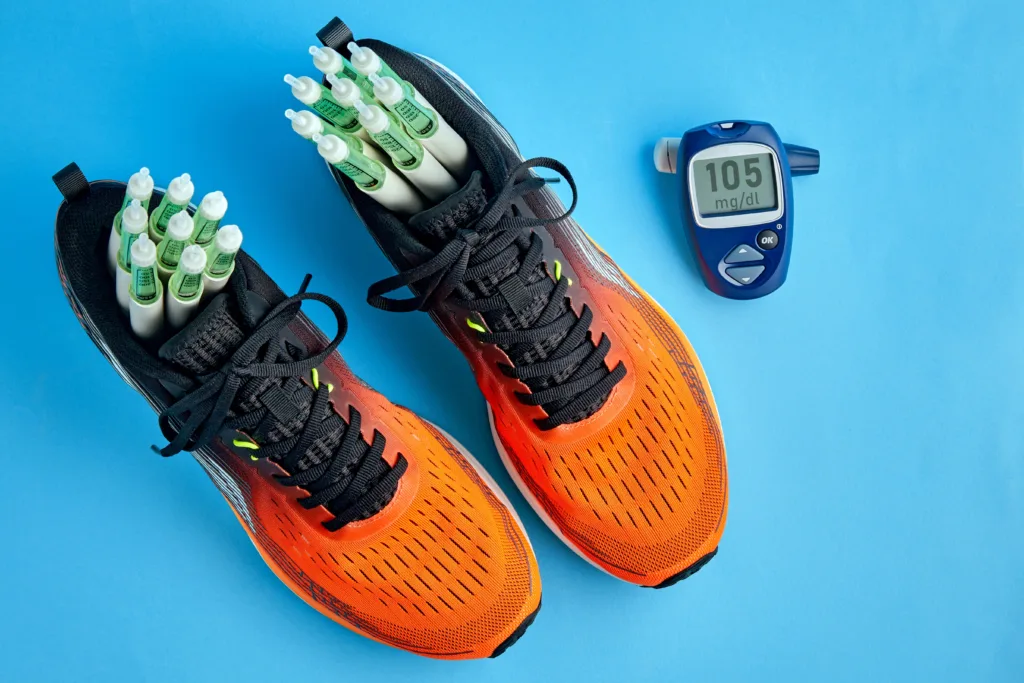
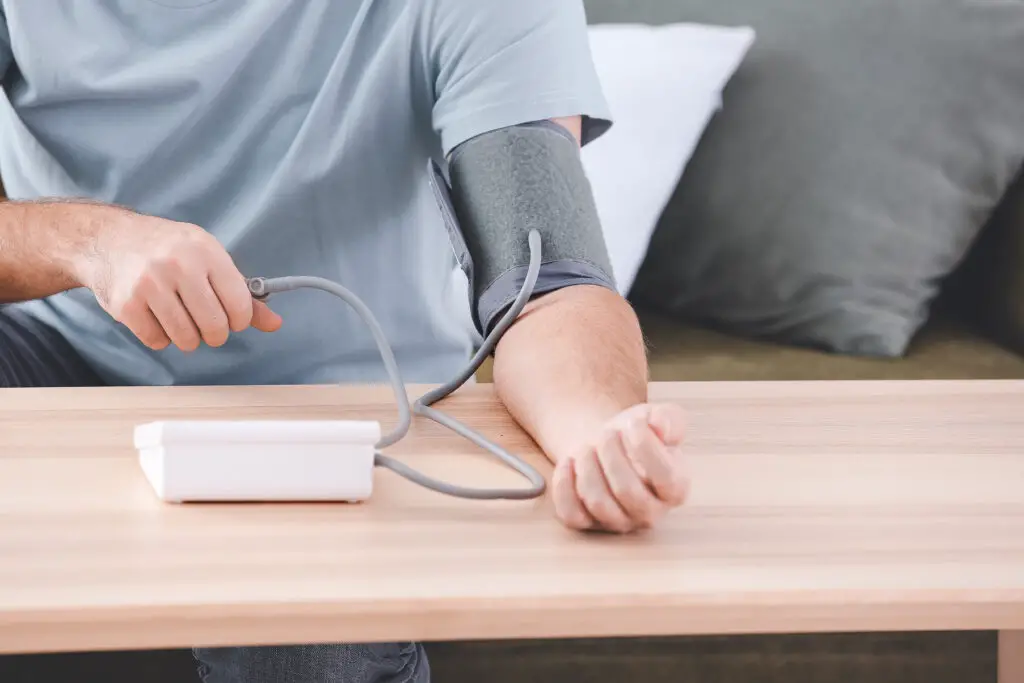






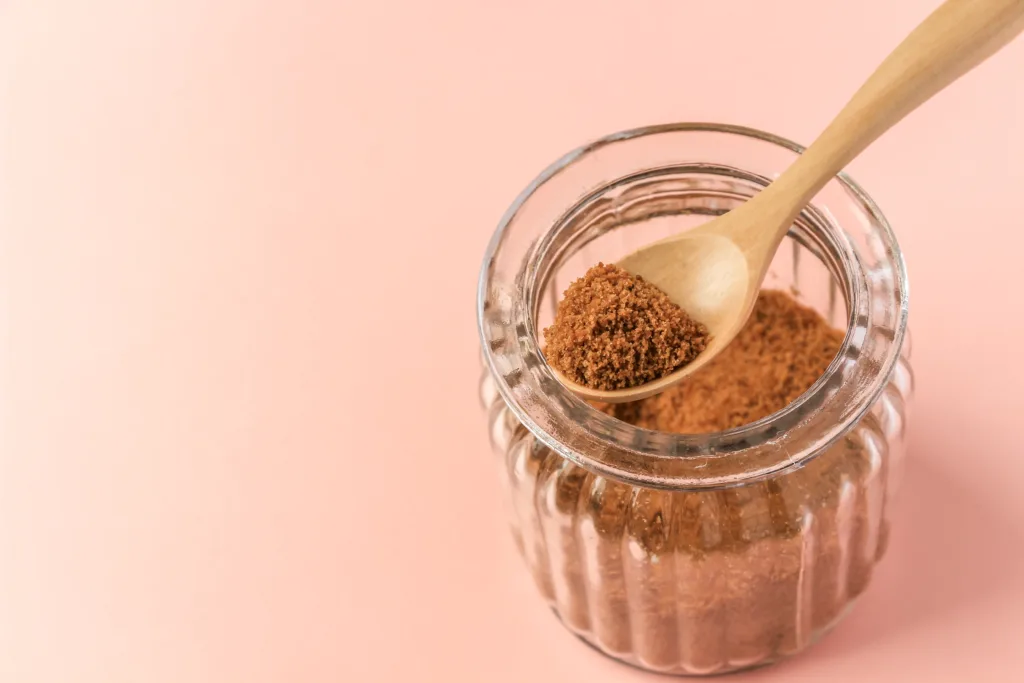

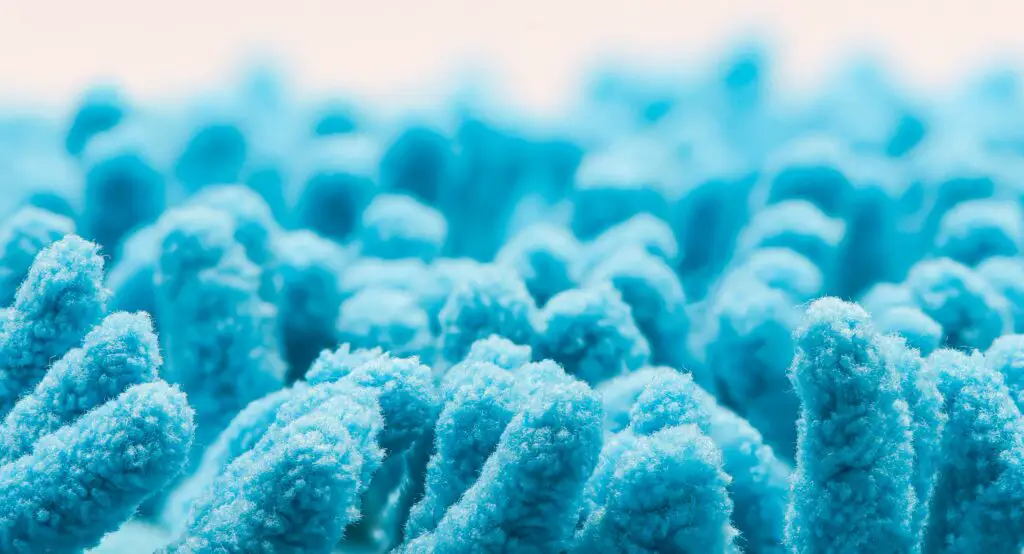
Comments
0